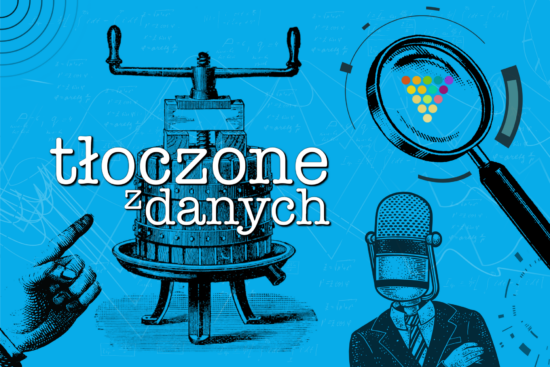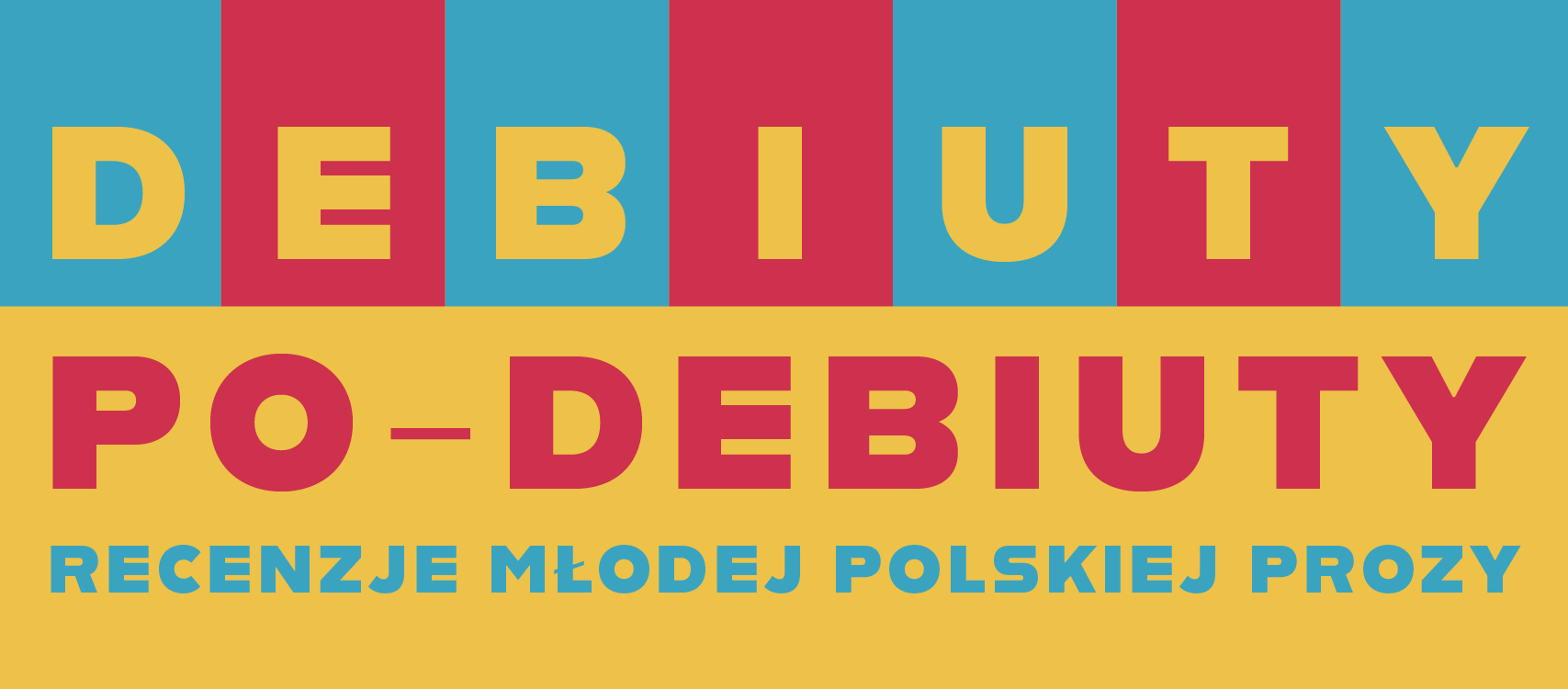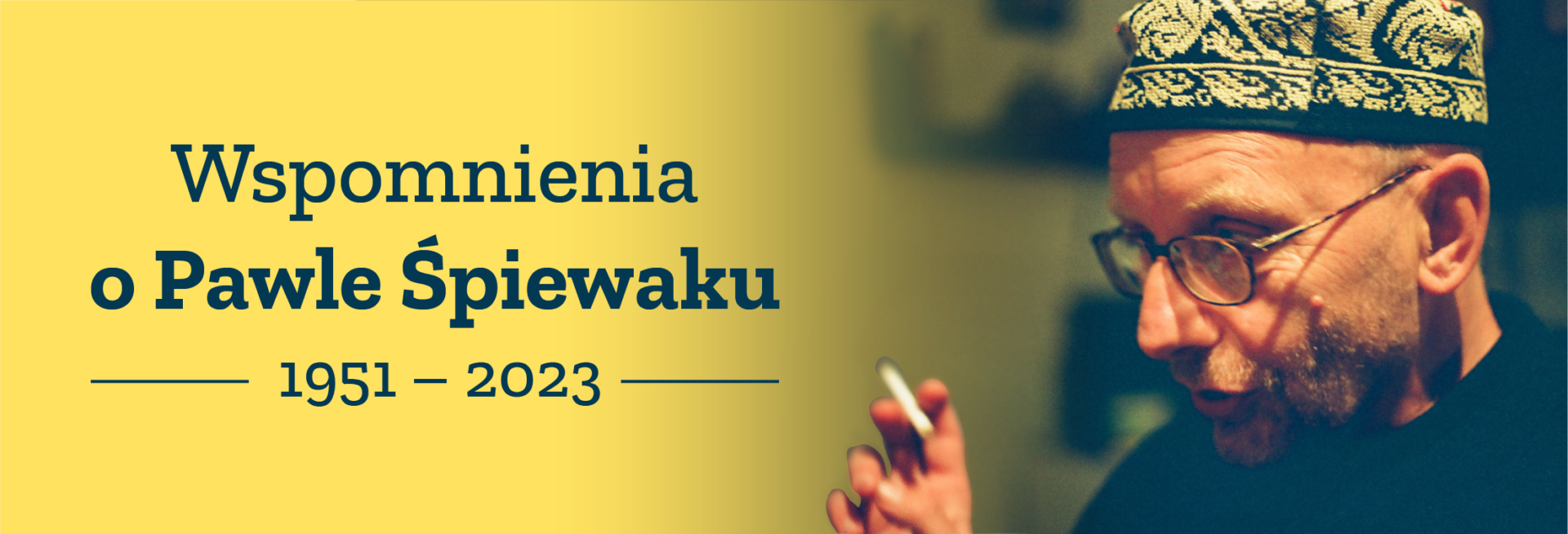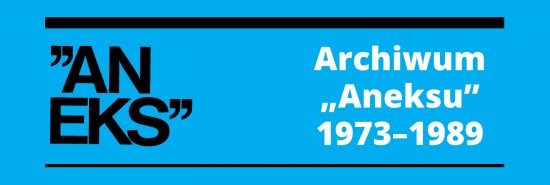KULTURA LIBERALNA > Temat tygodnia > BODNAR, BARAN, WCIŚLIK,...
BODNAR, BARAN, WCIŚLIK, BYCHAWSKA: Should Hungary be excluded from the European Union?
1. ADAM BODNAR: Viktor Orbán: dismantling democracy
2. MAGDALENA M. BARAN: Orbán’s fireworks
3. PIOTR WCIŚLIK: Something worse than a dictatorship: Victatorship
4. DOMINIKA BYCHAWSKA-SINIARSKA: Attempt on democracy
Adam Bodnar
Viktor Orbán: dismantling democracy.
Few years ago we feared that the IV Polish Republic would become indivisibly prevalent. The process of a creeping revolution, of slow and gradual changes was restrained by the Constitutional Tribunal and its renown verdict concerning the case of the vetting act. It had only been later a downward path for Jaroslaw Kaczynski‘s party followed by the elections in September 2007 and the take over by the Civic Platform.
In the time when Poland turned away from the phantom which threatened democracy, Hungary took a way to perdition. The famous leak from the comment of Ferenc Gyurcsány about lying to the voters caused mass protests and riots in Budapest and then on the air of hatred lead to a take over by the right-wing party Fidesz with Viktor Orbán at it‘s spearhead. Orbán did not stop at obtaining constitutional majority of two thirds in the Parliament. He lead to constitutional changes that maintained the reign of his party. Orbán also gradually took control over all particular state institutions and authority centers which could have threatened his parties position. In this way democratically won elections lead to taking over full power and have also made it possible to wield it in a totally autocratic style.
Therefore Orbán has achieved something that Jaroslaw Kaczynski has only dreamt about. Step by step he gained more and more control to finally fulfill the process of taking over the power by liquidating the main opposition and dealt with it in a way that in a moment might resemble the Brest trials. That is exactly the point of the last amendments to the Hungarian Constitution that were adopted in the end of 2011- amendments that on January 2 this year gathered crowds in front of the National Opera House in Budapest (exactly in this building Orbán and his party celebrated coming into effect of the new Constitution).
What was the nature of those changes? Passing of the renown and controversial media act aimed to limit the freedom of media and to show that in every moment there is always a threat that they can be deprive of their independence and pluralistic character. The limitation of the Hungarian Constitutional Tribunal‘s competences served the purpose of making the Tribunal not interfere into budget and tax cases. Orbán adopted the new Constitution in order to concentrate the whole power in one hand also to maintain it in the next parliamentary elections. We should remember that according to the new Constitution citizenship can be given without major problems to people who are living outside Hungary. Thanks to this the Hungarian minority living in the neighboring countries (Romania, Slovakia, Croatia), that is quite a big population, will be able to support Orbán (and other right-wing parties) while living peacefully abroad. Apart from doing constitutional changes Fidesz also took over the power on the local level and the presidents office. There is almost no institution left that would be truly independent.
The new Hungarian Constitution came into effect with beginning of 2012. The Hungarian system is specific though, because a lot of issues are regulated with so called border acts. Their adoption (and also change) needs the majority of 2/3 of all votes. The border acts are the main mechanism of the maintenance of the power, because even if next elections are lost by Fidesz, then the border acts (and changes introduced by them) can not be reversed, because gathering the majority of 2/3 might turn out to be impossible. In this way the status of the Constitutional Tribunal was regulated, and recently in the same way the change of the Central Bank‘s status was introduced.
In the last days of December 2011 new changes to the Constitution were adopted. The one most widely commented is the one that recognizes the Hungarian Socialist Party as the heir of the communist party and consecutively as a criminal organization. It is not clear how this party will further remain active. But if we add to this another correction to the Constitution – canceling statute of limitations for all criminal acts committed by people connected with this party, it is hard to expect something else than numerous political trials. Who knows, whether in a while socialistic party‘s leaders will end up like Yulia Tymoshenko. These changes a so unexpected and their dynamics so bug, that even Hungarian constitutionalists are not able to foresee how the situation will develop.
The changes to the constitution from December 2011 also concern the independent jurisdiction. The president of the Supreme Court András Baka was made redundant and the National Judicial Council was called off before the end of it‘s cadence. The official cause is appointing new jurisdictional institutions, but in fact it was all about taking control over the third authority. It was Tünde Handó, who became the chairman of the new institution, which replaced the State Jurisdiction Council. What is interesting, on January 2, 2012 her husband – József Szájer, the member of the European Parliament and a prominent Fidesz activist, resigned party membership in order to avoid any suspicions about his influence on his wife and the jurisdiction‘s independence. Szájer is the politician, who boasted of having written the new Hungarian Constitution on an iPad. This is why his yesterday gesture is only a theatrical mockery rather than having respect for the rule of jurisdictional independence.
One can list examples of limitations in the field of democratic institution functioning and tripartite division of powers. The situation in Hungary is without any doubt very serious. The constitutional majority of 2/3 in the parliament owned by Fidesz is paralyzing for the opposition and any serious objection. That is why for many months the protest has moved to the streets. Non-governmental organizations are playing a crucial role. In the last few months my friends from Hungarian Helsinki Committee and Hungarian Union for Citizen Liberties (TASZ) have become not only defenders of human rights but also almost dissidents. Vital role is played by social media. Because of the „delegalization“, in the last days the main opposition has joined the protesters. The street became for them the only place to practice politics.
In this way in the middle of Europe we have a country – a member of the European Union- which has stopped being democratic. There is a facade, one can demonstrate and use the internet, the opposition leaders are not yet retained or arrested, but there is no pluralism in the parliament, control institution‘s and jurisdiction‘s voice was taken away and the opposition is excluded from having any influence on the state. In a moment political trials might begin.
In such a situation rises a question- what can the international opinion do. The United States are not silent. Already in June 2011 Hilary Clinton expressed objection towards Orbán politics. Few days ago in strong word she called on Hungary to respect democracy and international obligations. The European Committee got interested in the media act and recently explicitly protests against limiting the independence of the Central Bank. But is it enough? Should not the next step be to institute a procedure of suspending Hungary in some membership rights in EU (including the right to vote on the forum of European Union Council)? The procedure statutory in the paragraph 7 of the EU Treaty has never been applied before, but maybe is high time it was. The condition on which the procedure can be instituted is „the existence of a distinct risk of a member state seriously violating principles of freedom, democracy, respect for human rights, basic liberties and rightful state“. The institution of the procedure itself might have vast meaning in disciplining a member state. Even if the EU is deep in financial crisis (and Hungary is not an exception), then one should not forget about this possibility. Initiative in this matter belongs to one third of the member states, to the European Parliament or to the European Committee.
Most of all, before it leads to such an initiative serving as a precedent on a European scale, we should not be indifferent. That is also a basic duty of Polish authorities. Poland cannot promote democracy, rightful rule and human rights among the Eastern Partnership or arabic countries, if it neglects a creation of an authoritarian system in a Eastern Europe country, which is mentally so close to us. Maybe gestures of solidarity will not change a lot, but one cannot remain indifferent, because if similar processes happened to us, we would also expect a reaction of other states, politicians, political parties and prominent foreign communities.
In those hard times for Hungary I would really like if the Polish minister of foreign affairs learnt from his wife Anne Applebaum, who already on December 28, 2010 compared situation in Hungary to Belarus. Unfortunately following Radoslaw Sikorski‘s activity indicates that as for now he only had a good feeling to promote Hungarian wine during the time of Polish presidency in the EU.
* Adam Bodnar, doctor of laws, vice-president of the Helsinki Foundation for Human Rights board and assistant professor in the Human Rights Department on the Faculty of Law and Administration on Warsaw University. Graduate of LL.M program and visiting professor on Central European University in Budapest.
***
Magdalena M. Baran
Orbán’s fireworks
While most Hungarians were thinking only about dressing the tree and buying the final Christmas presents, Viktor Orbán’s government kept busy. Despite the opposition’s protests, the day before Christmas Eve the Hungarian parliament passed a package of rather controversial laws. The international media’s attention was drawn primarily to the financial reform package, where the introduction of a flat tax and even the adoption of a 27% VAT – the highest in Europe – appear to be the least disputable components. What seems far more dangerous are limits to the independence of the National Bank of Hungary, deriving from the new Hungarian constitution that has just been implemented, considering that under the leadership of the previous team’s nominee, András Simor, the Bank’s monetary policy has been anything but convenient for Orbán. So the Prime Minister decided to gain the upper hand through legislative means, removing Simor’s right to name his deputies (who will now be chosen by the head of government), and increasing the number of the Monetary Council members from seven to nine, of which six will be nominated by the parliament. The intervention by the head of the European Commission proved predictably futile. In his letter to the Hungarian Prime Minister, Jose Manuel Barroso expressed his concerns regarding the Central Bank Act, at the same time suggesting that ignoring his warning may disqualify Hungrary from obtaining IMF loans. “We don’t want any loans, only access to a credit line,” was Orbán’s retort. He remained equally deaf to U.S. Secretary of State Hillary Clinton’s letter, whose tone was akin to Barroso’s. And all this just moments after his country’s rating was lowered again, this time to BB+.
The other legislation passed that day, which significantly changes Hungary’s voting system, has attracted far less attention. From 2013, the number of MPs will be limited to 199, of whom 103 will be elected in single-mandate electoral districts, and 96 from party lists. The legislation also introduces single-round elections, as well as the right to vote for citizens living permanently abroad – a change enthusiastically welcomed by Hungarian minorities in Slovakia and Romania. The most controversial, however, is the redrawing of electoral districts in a way that clearly favors Fidesz. The opposition protested that these changes indicate “the cementing of Fidesz’s rule,” and that “December 23rd 2011 saw the birth of Orbán’s new regime,” but to no avail. Here, political protests are quickly extinguished. Orbán’s police force acted swiftly, arresting protesters from the opposition parties Politics Can Be Different (Lehet Más a Politika!) and the Democratic Coalition (Demokratikus Koalíció), including Ferenc Gyurcsány, the former Prime Minister and the head of the increasingly more popular Democratic Coalition. A protest banner asked: “You won’t betray democracy, will you?” But they did.
When we couple the pre-holiday legislation with the recent decisions limiting the freedom of the media, such as revoking the pro-opposition Klubrádió radio station’s license, or banning the index.hu website’s reporters from entering the parliament, it is hard not to observe that Hungarian democracy indeed is not faring too well. This is not the first time that Orbán’s political fireworks explode in the New Year sky. But clearly, Hungarians are no longer blinded by the shimmering stars, and instead are beginning to notice that this is no grand celebration ushering in the carnival season. Rather, they see that this is chaos – that the ash settling over their country will be hard to clear, that the smoke left behind by the sparklers carries an unbearable stench, and that they have more to lose than to gain from allowing this irresponsible toying with fire to continue.
*Magdalena M. Baran, columnist of Kultura Liberalna weekly. She’ s preparing a doctoral thesis on political philosophy.
**Translated by Dominika M. Baran
***
Piotr Wciślik
Something worse than a dictatorship: Viktatorship
Viktor Orbán makes a point of calling the landslide victory of Fidesz in the April 2010 elections a “revolution at the ballot box.” This expression bears an uncanny resemblance to the political discourse of 1989 in Central Europe and is probably the last trace of political genealogy of Orbán, who started as a liberal within the ranks of the Hungarian democratic opposition during late Socialism. It comes from a manifesto proclaimed by the Hungarian PM during the opening session of the current legislature. The manifesto is the founding document of the “Regime of National Cooperation,” a regime which constitutes a break not only with respect to the postwar decades of “occupation and dictatorship,” but also with respect to the political order which emerged from the political pacts together are commonly known as the bloodless transformation to liberal democracy. Those political pacts, according to Orbán, „ instead of bringing freedom brought helplessness, instead of independence brought indebtedness, instead of prosperity brought poverty, instead of hope and brotherhood brought a deep psychological, political and economic crisis.” In contrast, national cooperation should be build without compromises around such values as “work, home, family, health, and law and order.” Everyone, “regardless of age, sex, religion, political views, regardless of where they live” are invited to the the task of erecting these “pillars of a common future.”
The Fidesz MPs hailed the manifesto in a separate bill and the government insisted on putting it in a visible place in all public offices in the form of a poster which lacks only the effigy of its author. Alas, the conservative-revolutionary masquerade was followed by actions. And it is from the new Hungarian constitution, in force since January 1, 2012, that one can properly judge what the new regime is really about.
***
The new Fundamental Law begins with a preamble called “The National Avowal of Faith” which shall be the interpretative basis for the future rulings of the Constitutional Court. It declares that henceforth the Hungarian civic identity shall be funded on the values of nationality, religion and family, “loyalty, faith and love.” It emphasizes the special role of Christianity in the national survival (confirmed additionally by one of the recent legal acts which reject recognition ex officio of many non-Christian creeds). It defines the constitution in a religious fashion as a „covenant” of the Hungarians of past, present and future generations. The family, as understood by the Constitution, is an union of between man and woman.
The National Avowal of Faith also includes many references to history, which repeat some of Orbán’s theses from the above mentioned manifesto. It proclaims that “after the moral defeats of the twentieth century, our need for spiritual and intellectual renewal is paramount” and the concomitant necessity of re-establishment of Hungary’s reputation. Interestingly the nation, according to the preamble, did not take any part in shaping its own postwar history. All responsibility for the moral crisis is due to the totalitarian regimes: between 1944 an 1990 Hungary was “occupied” first by the Nazis and than by the Communists and “no statutory limitation applies to the inhuman crimes committed against the Hungarian nation” by the occupiers. While the ex-dissident architects of the post-1989 republic are this time spared condemnation, it’s paramount to mention that the most recent constitutional amendment defines the Hungarian Socialist Party, MSZP, as the legal inheritor of the communist crimes. It is not certain what legal consequences follow for the faith of this mayor oppositional force.
While the preamble rejects the legal continuity with the 1949 constitution, it declares to draw its inspiration from the so called “Historical Constitution” – a medieval doctrine on which the Hungarian juridical order was based for most of its pre- World War II history, and according to which the country’s sovereign was neither the people nor the king, but a metaphysical being, the St. Stephen’s Crown itself. This is how Miklos Horthy, an admiral without a fleet, could have become a regent without a king. It also served to lay claims to the territory lost by Hungary in the Treaty of Trianon in 1920.
The National Avowal of Faith is an expression of a rather controversial moral views and historically inaccurate opinions of a certain part of the Hungarian political elite, but certainly cannot be said to resemble a legal framework for a modern pluralistic society that Hungary is. Doesn’t it follow from the preamble that in terms of faith and gender, some citizens are more equal than others, in defiance of the Charter of Fundamental Rights of the European Union which the previous government subscribed to?
After 1989 Hungary revised in depth the 1949 constitution (so that the only article left was “the capital of Hungary is Budapest”), but fell short of legally abolishing it as such. Does the rejection of continuity with the Communist constitution mean cancellation of the “invisible constitution” of the post-1989 republic, that is, all the rulings of the Constitutional Court?
And who actually rules Hungary: a people or a crown? And if the crown, on what territory? The latter question gains in political weight as the new constitution contains a possibility of granting voting rights to the Hungarian leaving outside the borders, an act which would enlarge Fidesz constituency, but would not do any good to the already tense relations between Hungary, Slovakia and Rumania.
***
Nevertheless, it is not the National Avowal of Faith, but the main body of the new constitution that contains the articles crucial for making a judgment about the nature of the new regime.
First, the constitution proclaims what the Regime of National Cooperation is not, changing the name of the country from “Hungarian Republic” to just “Hungary.” More importantly, it dramatically reduces the authority of the Constitutional Court in what concerns all budgetary issues, as well as grants to the government full liberty in appointing its members. Furthermore many of the most controversial new provisions will be possible to amend only when possessing a qualified majority of two thirds (the so called cardinal acts). In addition, the term of office of the institutions entrusted with the role of maintaining checks and balances, but now controlled by Fidesz, will now last for more than twice the electoral cycle. In order to be able to change the head of the Supreme Court, whose tenure was not bound to end anytime soon, the constitution renames it as “Curia.” Finally, the new Fundamental Law sets up the Economic Council, an institution whose independence is being contested between Orbán’s government, in dire need of a new credit-line, on the one hand, and on the other the IMF and the EU. No less importantly, the Economic Council is empowered to reject the budget voted by the parliament, which in turn gives the president (also close to Fidesz) a possibility to dissolve it.
***
In the last analysis, it seems clear that the Regime of National Cooperation takes departure not only from the procedures of liberal democracy, but also its spirit. Democratic legitimacy, electoral algebra apart, is related to deliberation and the more it can stand to or assimilate independent critique, the stronger it is. Furthermore, modern democracy is a regime where – in the words of Claude Lefort – “the place of power remains empty” and thus is incompatible with lawmaking that empowers one part of the political establishment to occupy it indefinitely.
In contrast, in Orbán’s Hungary, not only the oppositional parties, but also the voice of the independent public opinion and the civil society organizations was excluded from the constitutional lawmaking. The new regime supposes even more than a curtailment of the independence of all the institutions responsible of maintaining the checks and balances, now subordinated to the ruling party’s proxies. Fidesz will be able to control these institutions for more than twice the electoral cycle, that is, even after its potential removal from government. Incidentally, this last task has been made more difficult by recent changes in the electoral law, which gives Fidesz a great advantage in the next elections over its opponents. All this amounts in practice to a governance along the lines of the principle of après nous, le déluge. And due to the cardinal acts, even after the levee containing the popular anger brakes, all the harm to the constitutional fabric will be immensely difficult to repair.
Can one speak of a dictatorship? No, things are even worse. In principle, despite Orbán’s authoritarian style of governance, the constitutional guarantees of a democratic way of changing the government still persist. Nevertheless, even if Orbán goes, his departure can result in something worse than a dictatorship: a state of non-governability, a political impasse. Thus, paradoxically and by way of unintended consequences, the tendency of the Regime of National Cooperation towards concentrating all power in a few hands, can lead to a sort of bizarre anarchy from above.
In the new constitution, one article at least is undoubtedly democratic. It reads: “No one’s activities may be directed at the acquisition or exercise of power by violent means, or at its exclusive possession. It shall be the right and obligation of all to resist such activities by lawful means.” Even though Hungary is no longer a republic, the republican right to civil disobedience remains a right for all those who “do not like the system.” Under this clarion call around 70 000 citizens rallied in Budapest last October 23. On January 2, 2012, when the Fidesz elite was celebrating the coming of the new order inside the Opera House, outside, the Andrassy boulevard was flooded with protesters. That its numbers are said to have reached 100 000 means that in the era of the global civic awakening, the Hungarian society shall not get cowed gently into cooperation by Orbán’s design.
*Piotr Wciślik, expert in Iberian studies, sociologist, historian. He writes PhD thesis on Central European University in Budapest.
***
Dominika Bychawska-Siniarska
Attempt on democracy
The Hungarian Presidency in the EU Council in the first half of 2011 began with a discussion on the new media act. The regulation, which came into effect on 1 January, provides comprehensive stipulations applicable to all kinds of media: the printed press, broadcast programming and the Internet. It was criticised by some of the Member States [1], the European Commission [2] and the European Parliament [3], given its non-compliance with the international standards of freedom of speech and guaranteed independence of the media. Concerns were also raised by the NGOs and international media. Freedom of speech is the fundamental element of democratic society. The post-communist states are particularly obliged to respect and fully implement that freedom. Enactment of a media act which raises severe objections as to the international standards of freedom of speech should be perceived as a regression in the democratic transformation in Hungary.
The media act was imputed as granting extremely extensive competencies to the National Media and Infocommunications Authority (NMHH), which supervises all the electronic media. The act provides that the Authority is headed by a president appointed by the Hungarian President for a term of nine years. Under other provisions of the Act, the Hungarian PM or President may recall the NMHH president. Premises for such a recall are quite laconic. The method of appointment and recalling the president of such an important authority raises doubts as to the political independence of the authority. There are also concerns that the Director-General of the authority is appointed and recalled by the Hungarian President. As a result, two decision-makers in the authority depend upon the President, and their activities may be controlled by the President who may recall them from their offices.
Another criticised solution is the establishment of a five-man Media Council, appointed by the Hungarian Parliament for a term of nine years. The president of the Council is appointed by the Prime Minister. Under the Act, the broadcasters can be fined if they breach provisions of the Act, in particular if they present content of “drastic and violent nature, humiliating or inciting hatred among the nations or religions”. These concepts are vague and leave a great margin for unrestricted operation to the Council. There are also concerns about the provision under which broadcasters can be fined for publications which stand in conflict with the generally adopted and correct political line of the government. The Council may impose fines of up to 200m forints (€700,000) on the e-media, and up to 25m forints (€89,000) on online publications or dailies. Such a high fine may result in bankruptcy of smaller publishers or editors. Entrusting competencies which are so severe in consequences to an authority whose independence is dubious infringes upon the guaranteed freedom of speech and freedom of media activities [4].
The power to search the editorial office, inspect the documents and oblige a journalist to reveal the source of information to the Council Media in matters of national security and public order has been found to be in stark contrast with standards of freedom of speech.
The Hungarian media Act has also introduced the option to sponsor TV and radio programming without an obligation to disclose the sponsor of such programming. This regulation may result in abuse of position by the elites in power and mislead the audience as to the nature of the programming. The Act has also imposed a wide obligation to register all the media, also the online media and blogs.
Faced with international criticism, the Act underwent minor changes. The principle of the “country of origin” was introduced. Based on this principle, the new provisions will not apply to broadcasters from other Media States. The general ban on the speech of hate and discrimination in the media was abolished as well. On 16 February 2011 the European Commission accepted the amendments. The approval should be assessed solely in political criteria as it was aimed at calm completion of the leadership in the EU Council. The doubts as to the regulations imposed by the Act were sustained by the European Parliament [5], the Commissioner for Human Rights of the Council of Europe [6] and the OSCE [7].
On 19 December last year, the Hungarian Constitutional Court found multiple provisions of the Act to be in conflict with the constitution [8]. The fact that under the Act the NMHH was able to take action against printed mass media if they infringe upon human rights, dignity or personal affairs “is a restriction of the freedom of press in breach of the constitution” (art. 61 of the Hungarian Constitution). Such abuse can be prevented by taking the usual legal steps. Thus, the Court made the NMHH unable to control the contents of the printed press and the Internet. The Court also repealed the obligation imposed on all the media to provide the NMHH, upon its request, with all of their business details. The Court found the power to interfere with the journalist sources of information by searching the editorial office to be affecting the freedom of speech. Such actions should undergo court supervision first. The unconstitutional provisions will expire on 31 May 2012. However, it is not known whether the judgment will be respected by the legislator and whether the Act will be re-enacted in its current form. Such precedences have already occurred in Hungary [9].
In case of the Hungarian Media Act, the Constitutional Court effectively intervened and imposed the obligation to introduce legislative changes. Europe, despite numerous voices of criticism, has failed to force Hungary to make considerable changes. The interest of presidency and the intention to complete it without major disturbances overshadowed the obligation for mutual support of the Member States in driving towards stable democracy, as provided for the homogeneity clause of article 6 of the Treaty establishing the European Union [10].
* Dominika Bychawska-Siniarska, co-ordinator of the “Europe of Human Rights”, a HFHR project.
Footnotes:
[1] Great Britain, Germany (an appeal of the German Foreign Minister, Guido Westerwelle) or France (statement by the French Government’s Spokesman, François Baroin).
[2] Statement of 11 January 2011 available at: http://europa.eu/rapid/pressReleasesAction.do?reference=SPEECH/11/6.
[3] Statement of 18 January 2011 available at::http://www.europarl.europa.eu/news/pl/pressroom/content/20110117IPR11813/html/Hungarian-media-law-sparks-controversy-at-the-European-Parliament.
[4] According to Hungarian press, the Media Council instituted first proceedings against the Tilos Radio which played songs by a US rapper during the day. Under the new Act, such songs should be played at night, from 9 p.m. to 5 a.m. Such an “offence” could result in a high fine according to the new Act.
[5] Resolution of 10 March 2011 available at: http://www.europarl.europa.eu/sides/getDoc.do?pubRef=-//EP//TEXT+TA+P7-TA-2011-0094+0+DOC+XML+V0//EN.
[6] Statement of 25 February 2011 available at::http://www.coe.int/t/commissioner/News/2011/110225MediaHungary_en.asp.
[7] Statement of 8 March 2011 available at: http://www.osce.org/fom/75990.
[8] Judgment in Hungarian available at:http://www.mkab.hu/admin/data/file/1146_1746_10.pdf.
[9] Enactment of the Act on 16 November 2010 which imposed a 98% tax on leave paid upon redundancy, despite the fact that the provision was found to be unconstitutional on 5 November 2010. The Constitutional Court will not be able to re-review the provision since tax and customs matters have been withdrawn from the scope of its competencies.
[10] Official Journal of the European Union of 30 March 2010, C 83/3.
***
Concept: Adam Bodnar, Karolina Wigura
Kultura Liberalna nr 156 (1/2012), January 3rd 2012
Skoro tu jesteś...
... mamy do Ciebie małą prośbę. Żyjemy w dobie poważnych zagrożeń dla pluralizmu polskich mediów. W Kulturze Liberalnej jesteśmy przekonani, że każdy zasługuje na bezpłatny dostęp do najwyższej jakości dziennikarstwa.
Każda i każdy z nas ma prawo do dobrych mediów. Warto na nie wydać nawet drobną kwotę. Nawet jeśli przeznaczysz na naszą działalność 20 zł miesięcznie, to jeśli podobnie zrobią inni, wspólnie zapewnimy działanie portalowi, który broni wolności, praworządności i różnorodności.
Prosimy Cię, abyś tworzył lub tworzyła Kulturę Liberalną z nami. Dołącz do grona naszych Darczyńców i Patronów!
PRZECZYTAJ INNE Z TEGO NUMERU
KOMENTARZE




















